Documenting lockdown through drone photography
- Published
Chris Gorman's drone photos have revealed extraordinary scenes during the UK lockdown, with many of his images used in the media.
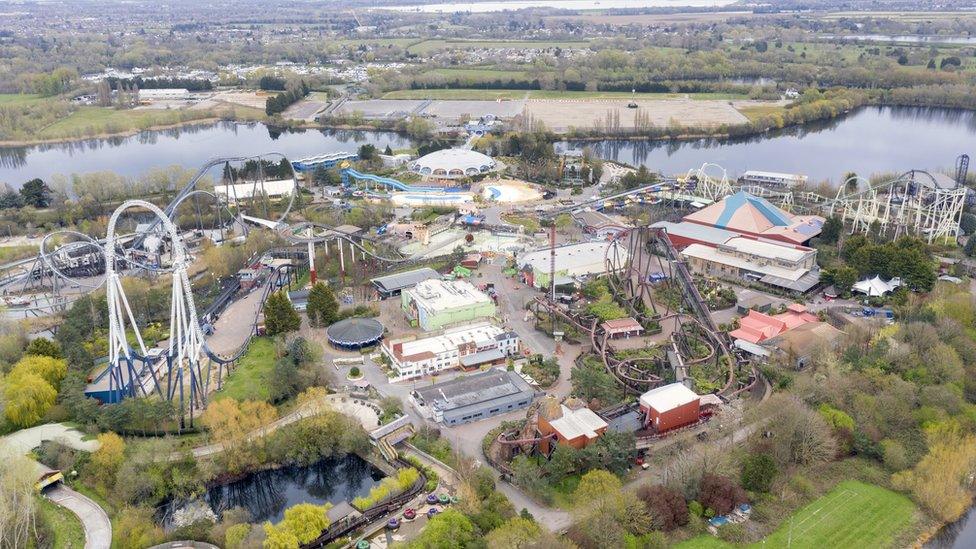
Thorpe Park, Surrey, is empty on what would have been the first day of the Easter holidays on 3 April
With 25 years photographic experience, Gorman captured the scale of the unfolding coronavirus story, with a number of his photos being used in national newspapers and international publications.
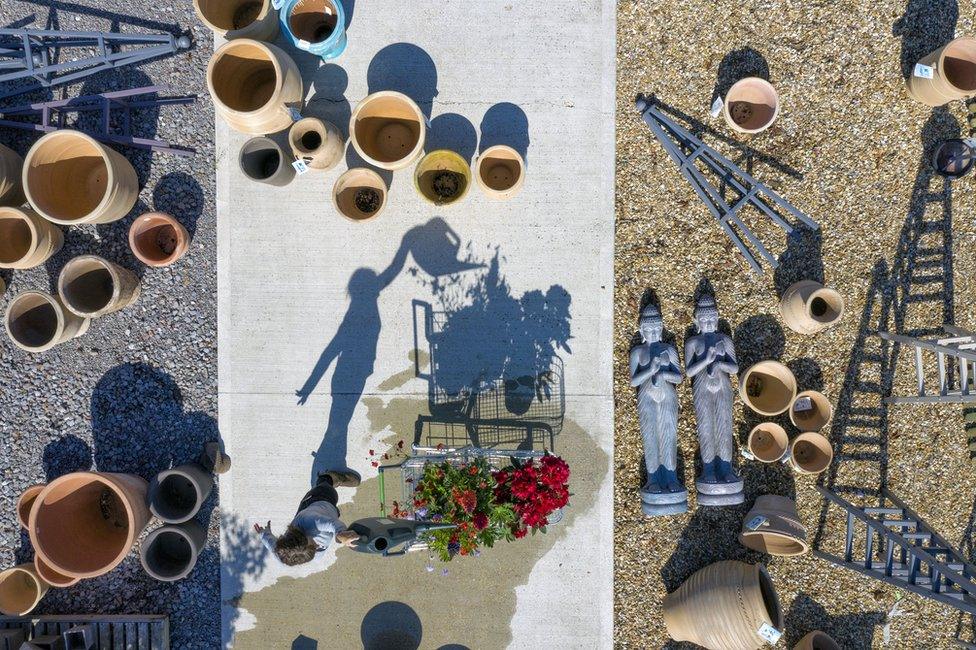
Plant manager Jo Dickinson tends the plants at Forest Lodge Garden Centre in Farnham, Surrey
"In the days leading up to the full lockdown, every day provided a new and unique picture, from panic-buying to empty retail parks and shopping malls and unsold cars stacked up on runways," says Gorman.
"My first image was the near-empty Bluewater car park taken on 16 March (below). This was the day that Health Secretary Matt Hancock told the Commons that 'all unnecessary social contact should cease'.
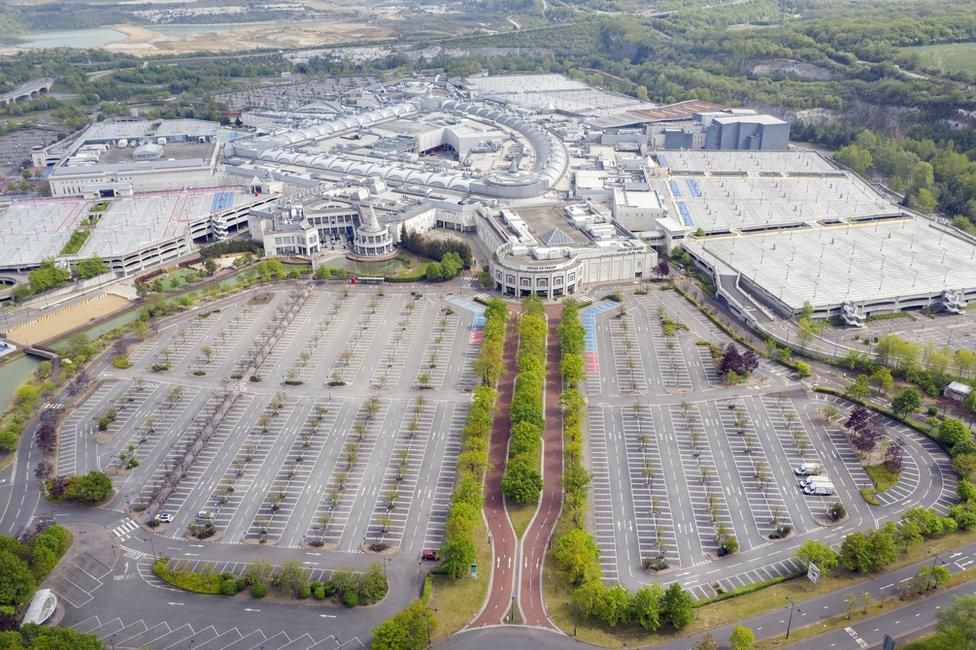
Bluewater shopping centre in Kent
"I knew an aerial image of one of the UK's largest shopping malls would give an immediate picture of the effect on the economy in general."
Gorman's image of Bluewater appeared in the Daily Mail and The Daily Telegraph.
His image of a deserted Leeds Castle in Kent at sunset was taken on the same day (below).
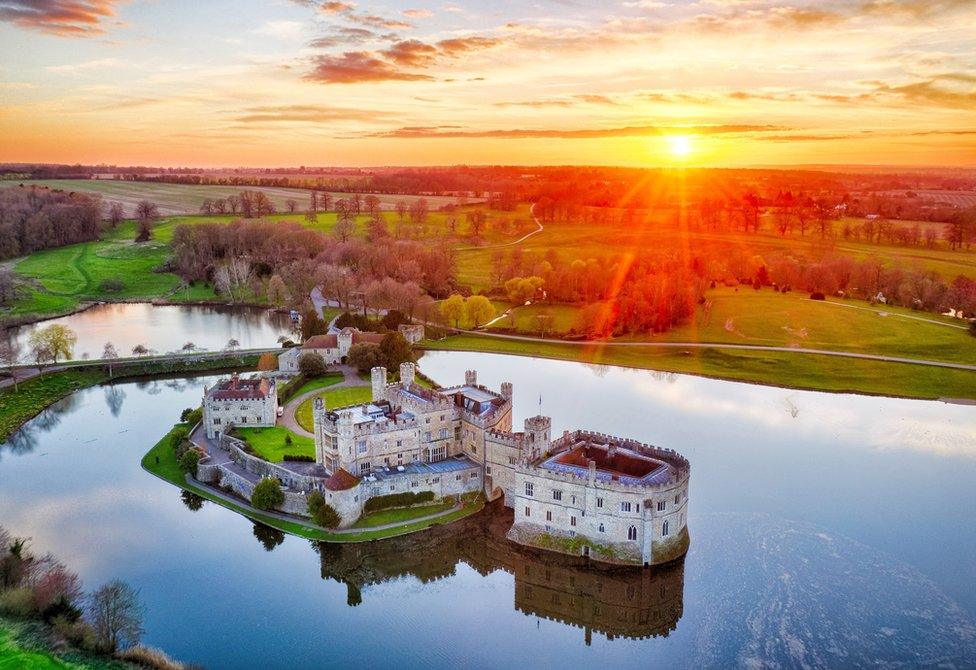
Sunset over Leeds Castle in Kent
"The next potential image that came to my attention was the panic-buying.
"Social media had started to become awash with various images of huge lines at supermarkets very early in the morning.
"A tip from the London Evening Standard told me that Tesco in New Malden had huge lines.
"I arrived on site at 5.45am (the store opened at 6am) and to my astonishment the queue was halfway round the car park with people pouring in and literally running to get into the queue.
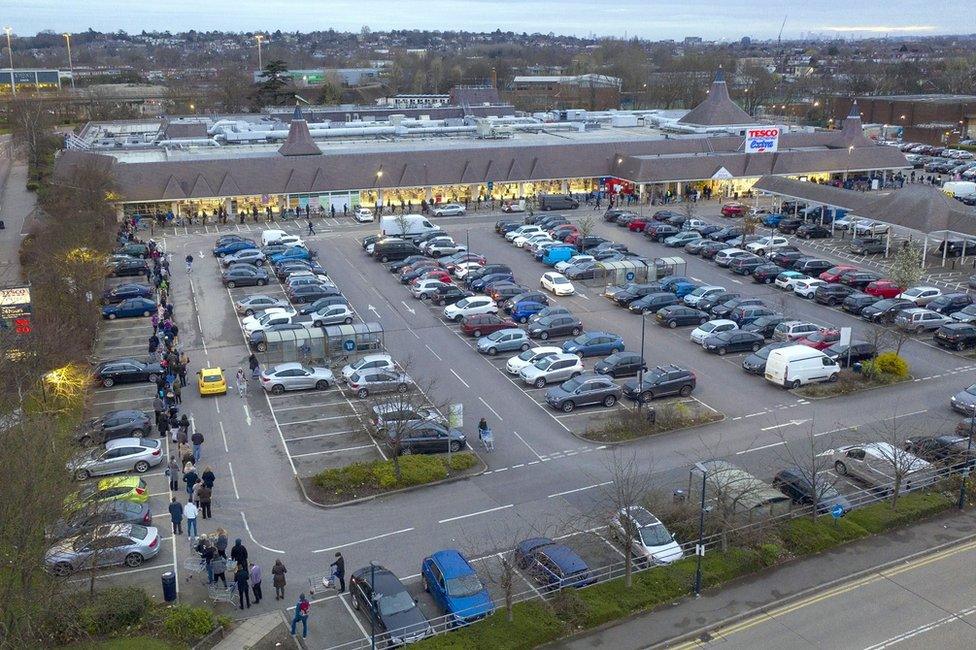
Tesco Extra in New Malden, south-west London, at 05:50 GMT as buyers get ready to clear out supermarkets on 20 March
"This image appeared in The Evening Standard, The Daily Mail, The Sun, The Daily Telegraph and the Daily Mirror.
"When Boris Johnson officially announced full lockdown on 23 March, my first thought was to photograph the empty retail parks of south London.
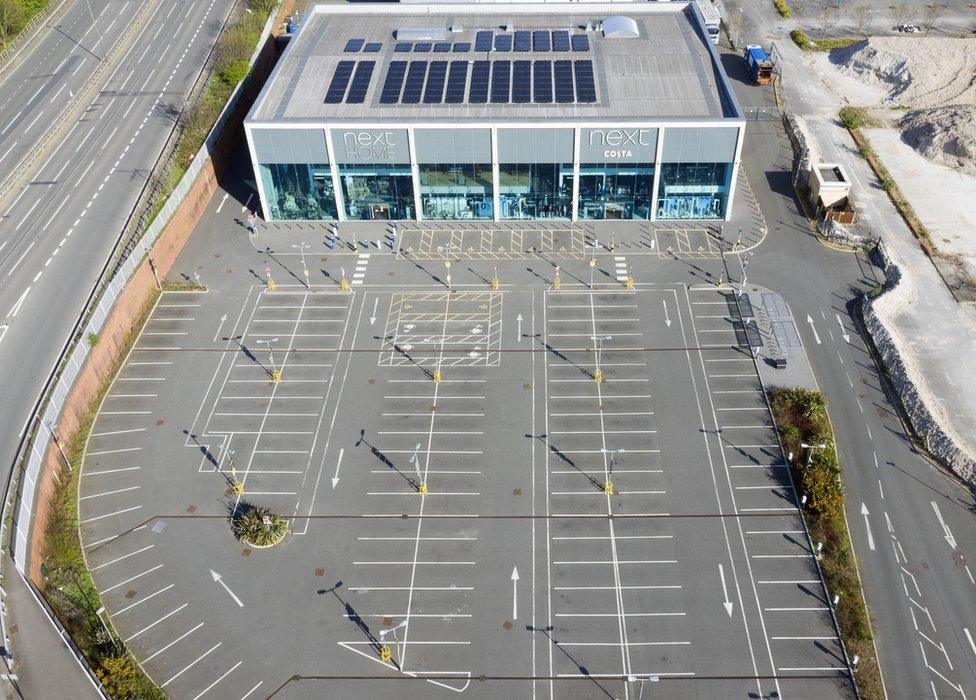
A Next store in New Malden on the first day of lockdown
"This was closely followed on 26 March by an image of a deserted Stonehenge.
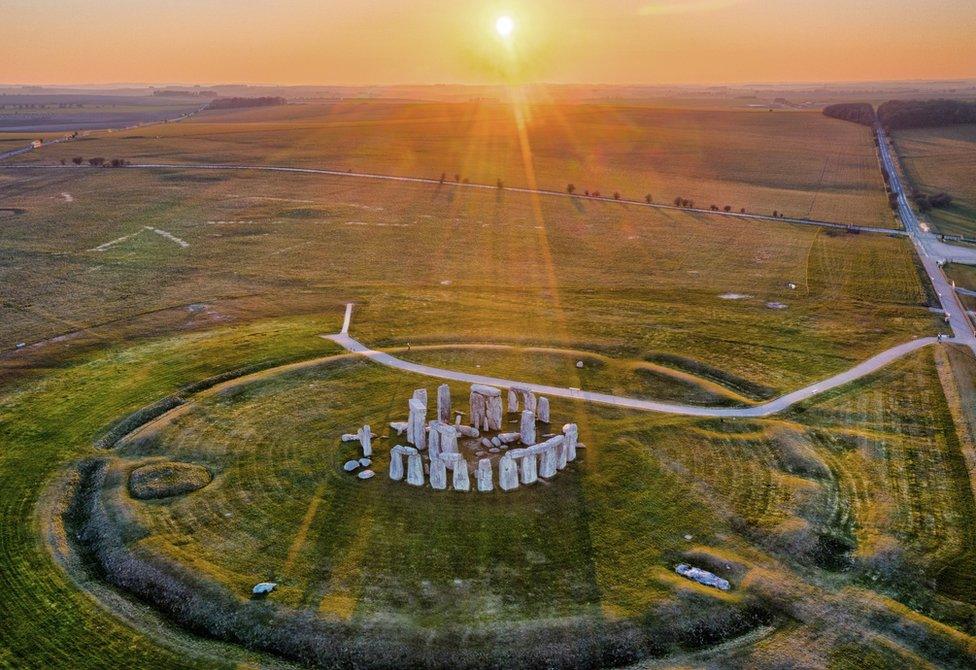
Stonehenge at sunset during the lockdown
"These images appeared in the financial pages of the Daily Telegraph and The Daily Express.
"As the economic crisis began to unfold, I needed a picture that would unveil the true enormity of what was happening and the devastating impact it was having on the economy.
"I had become aware that many disused runways in the Midlands were being used to store new and used cars that remained unsold.
"I photographed three airfields in total, in Oxfordshire, Northamptonshire and Bedfordshire.
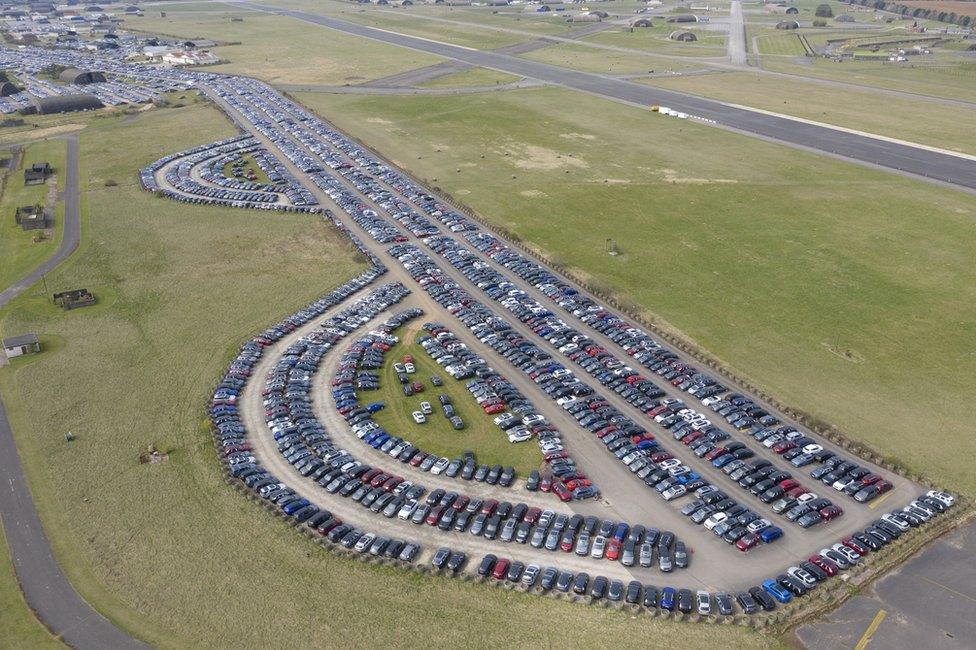
Thousands of new and used cars stored at the disused Upper Heyford aerodrome in Bicester, Oxfordshire

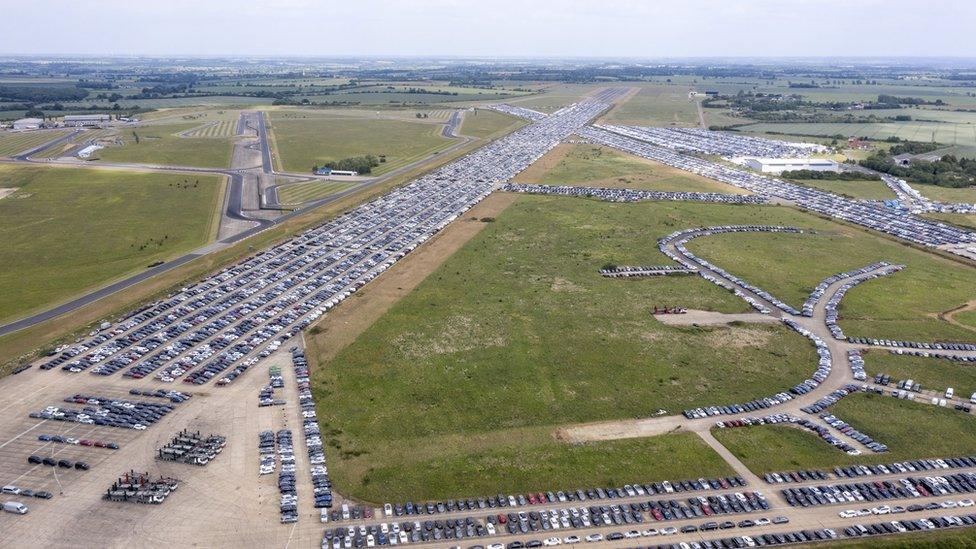
Unwanted new and used cars line up at Thurleigh airfield in Bedfordshire
"The resulting images were probably my most successful of the whole lockdown, being used in the Daily Telegraph, The Daily Mail, The Daily Express and The Sun.
"The full lockdown had many other angles and pictures to take into consideration.
"It had come to my attention that people were having mass clear-outs and were throwing a huge amount of rubbish out of their homes.
"Unsure how to capture this in one image, the moment finally presented itself to me when I was photographing a virus testing centre in Wembley.
"The local Tesco recycle point was so overrun that items had to be stacked up around it.
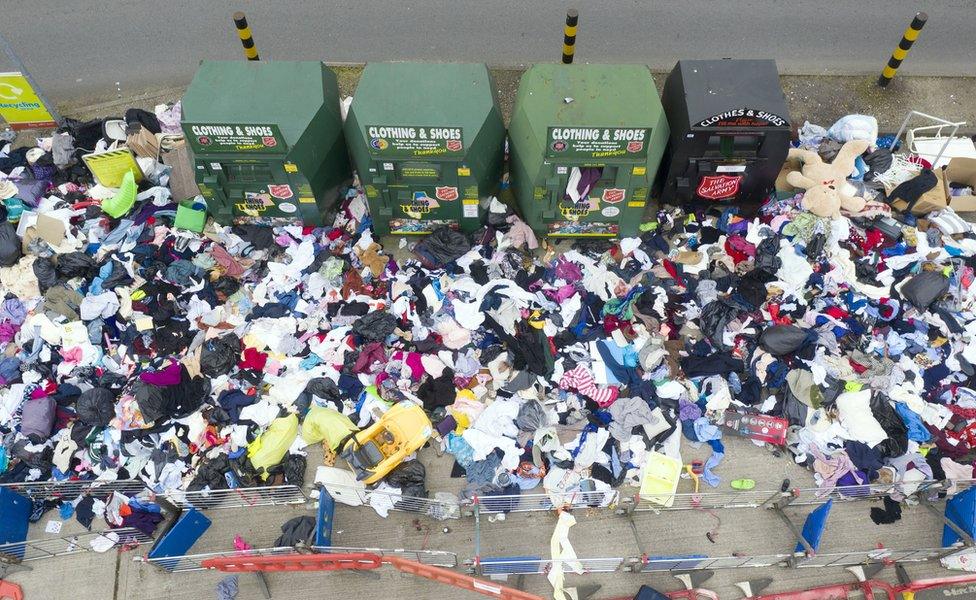
Piles of recycling and general rubbish lying uncollected at Tesco Extra Store in Wembley, north London
"The virus testing centres themselves were a constant source of images, if only for the fact that they were nearly always empty when I went to photograph them.
"Eventually the lack of use of these facilities became the story.
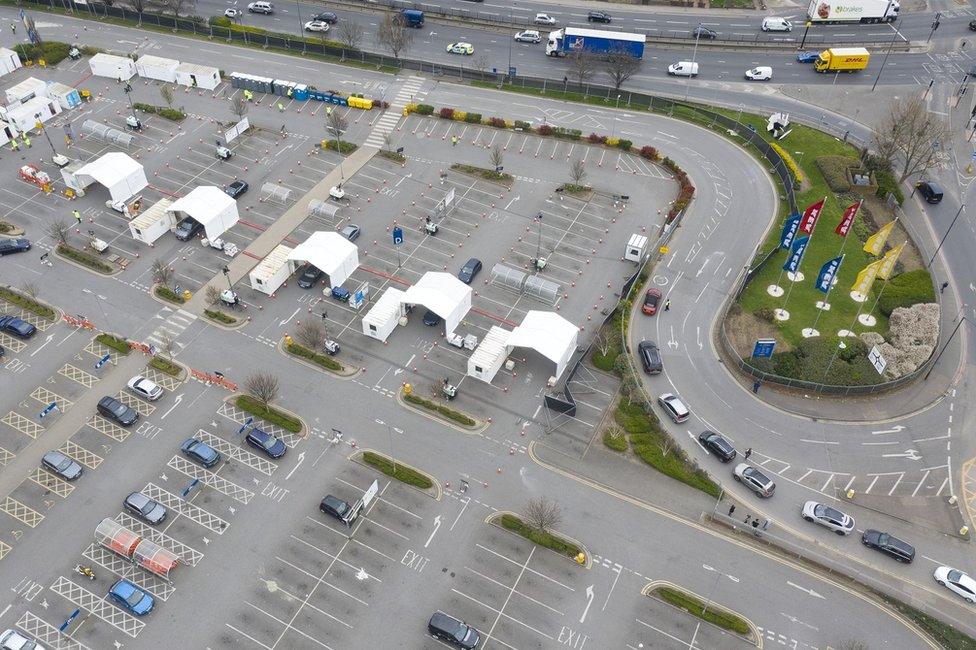
A coronavirus testing centre in north-west London on 1 April

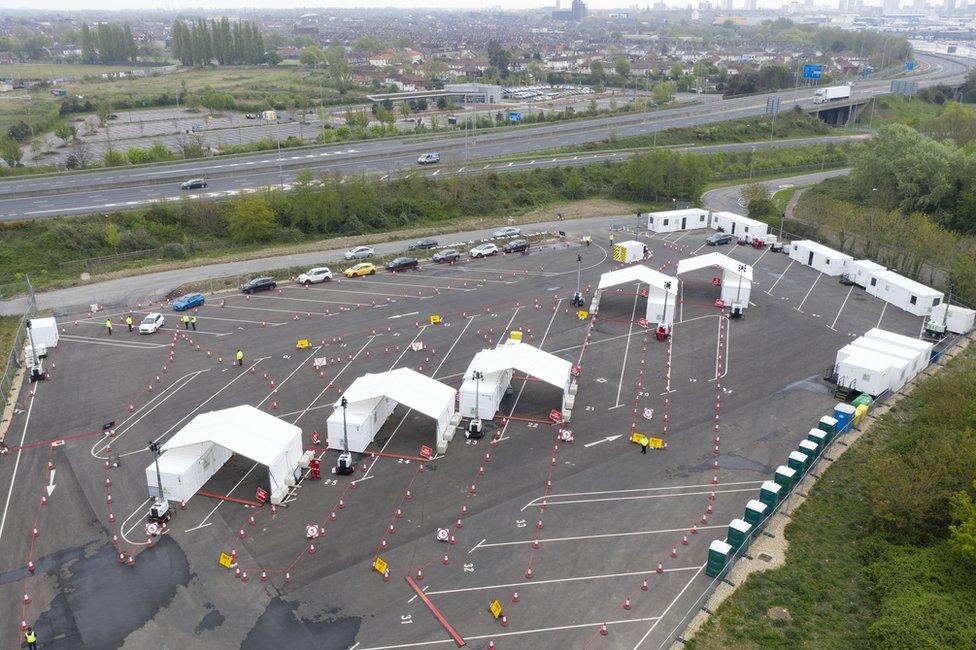
A coronavirus testing centre in Portsmouth on 18 April
"Every Thursday night was 'Clap for Carers' at 8pm.
"The image of Tower Bridge and the City of London at twilight was taken as lockdown London came to a halt for the clap.
"This is an image that will possibly never be seen again, London with barely any cars on any of the bridges.
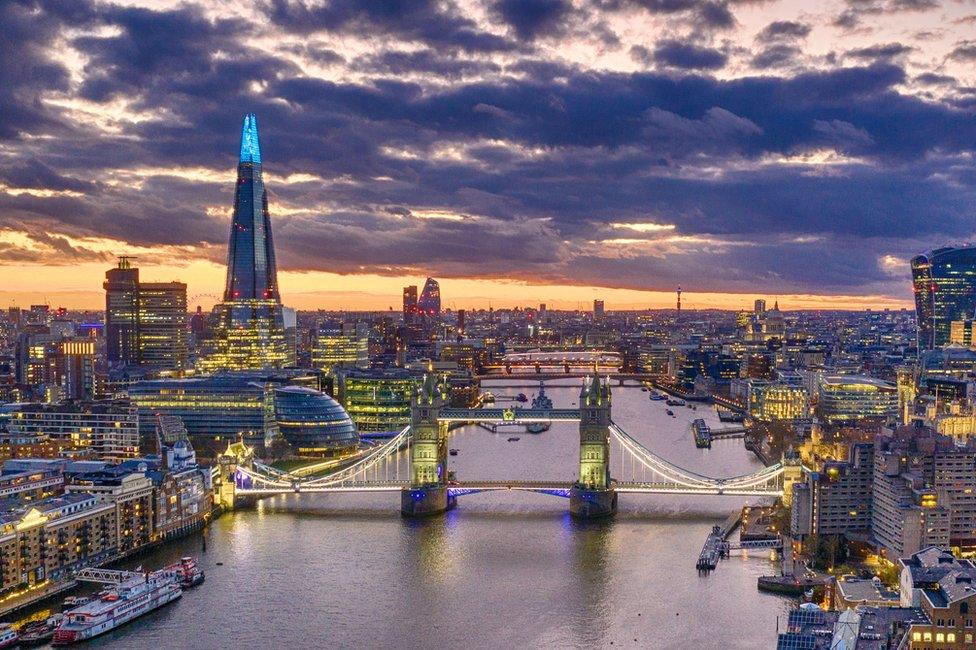
Central London pictured during the Clap for Carers at 20:00 BST on 3 April
"On Good Friday it occurred to me that I had photographed Bournemouth beach on exactly the same day last year.
"With the weather also expected to be very hot, I wanted to show the beach completely empty - in comparison to the image from a year before."
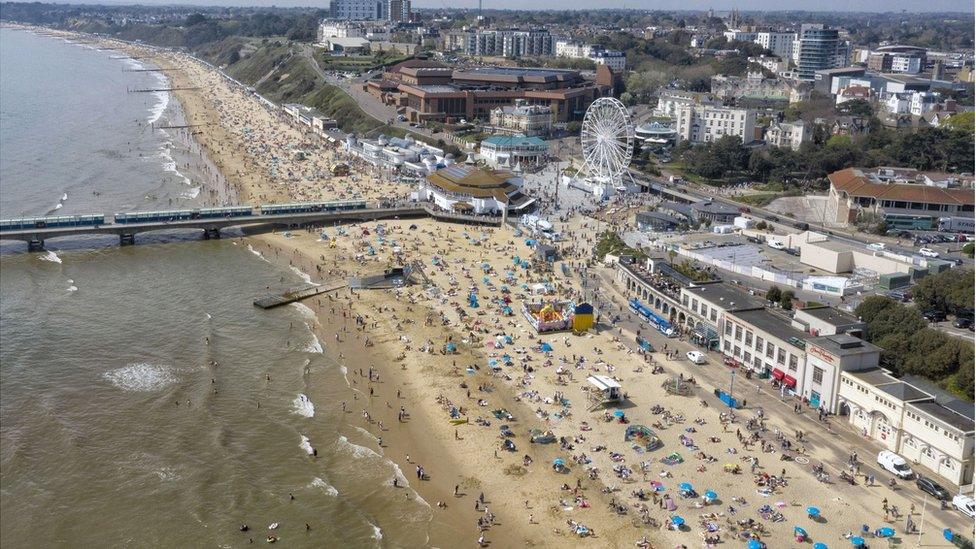
Bournemouth beach as seen by drone on Good Friday 2019

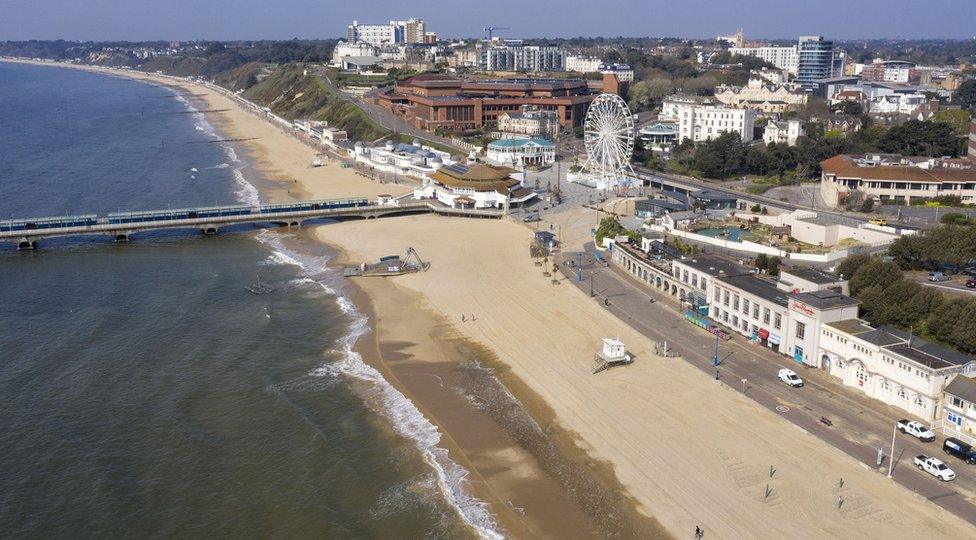
An empty Bournemouth beach seen by drone from the same angle one year later on Good Friday 2020
Here's a selection of other eye-catching photos by Chris Gorman, taken throughout the lockdown.
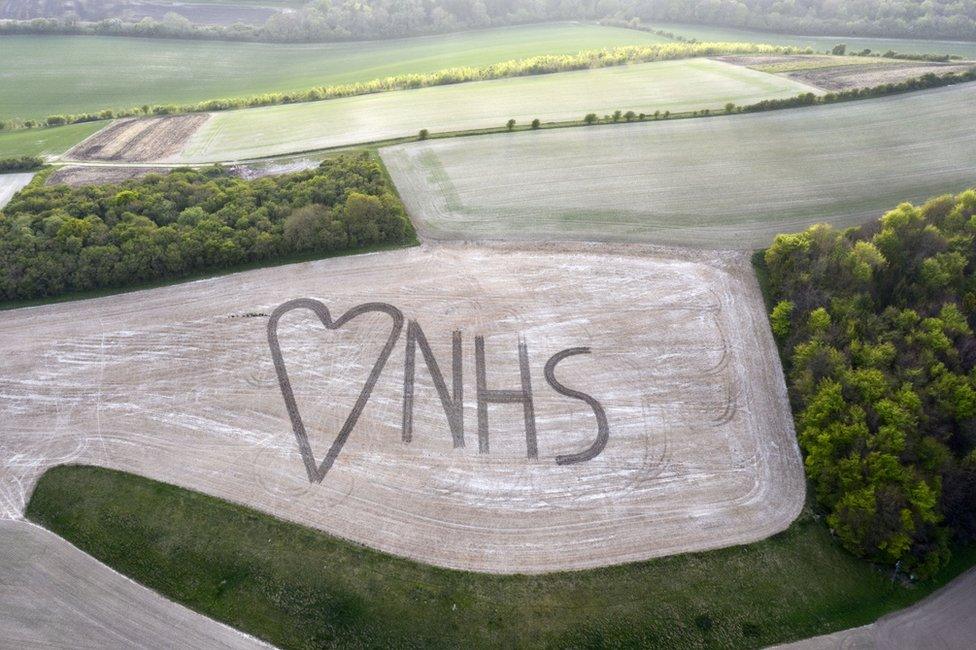
A farmer's tribute to the NHS at East Meon, Hampshire on 23 April

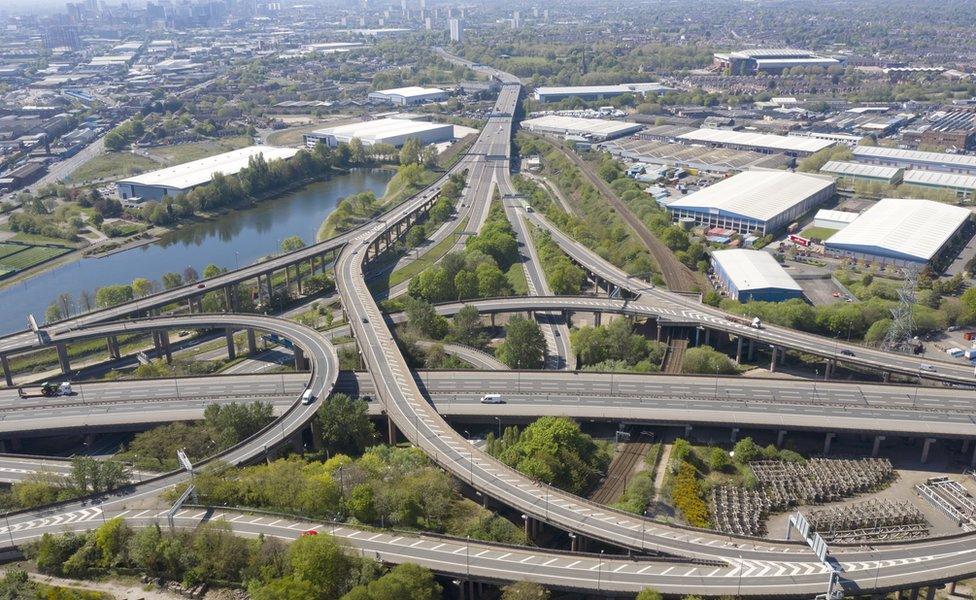
A very quiet Spaghetti Junction in Birmingham on 24 April. The famous junction linking the A38 with the M6 usually carries more than 210,000 vehicles a day

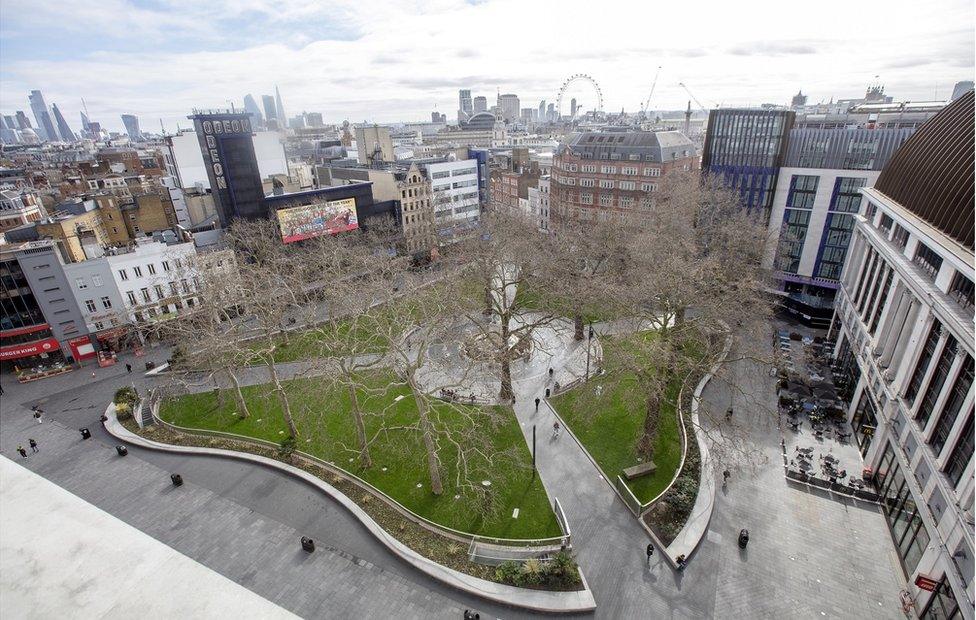
A deserted Leicester Square in London on 17 March

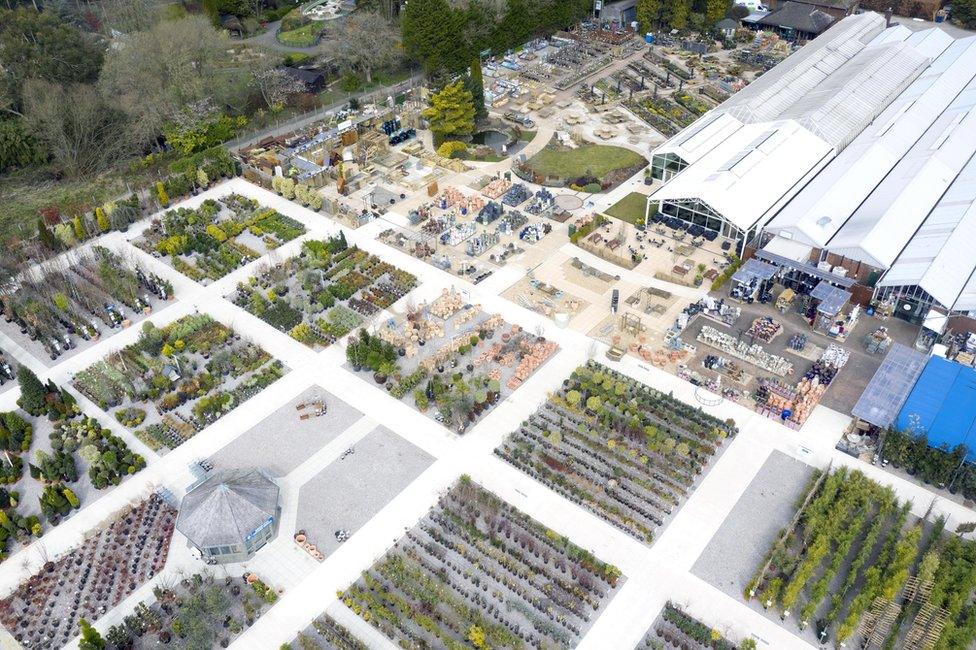
Forest Lodge Garden Centre, Farnham, Surrey on 31 March

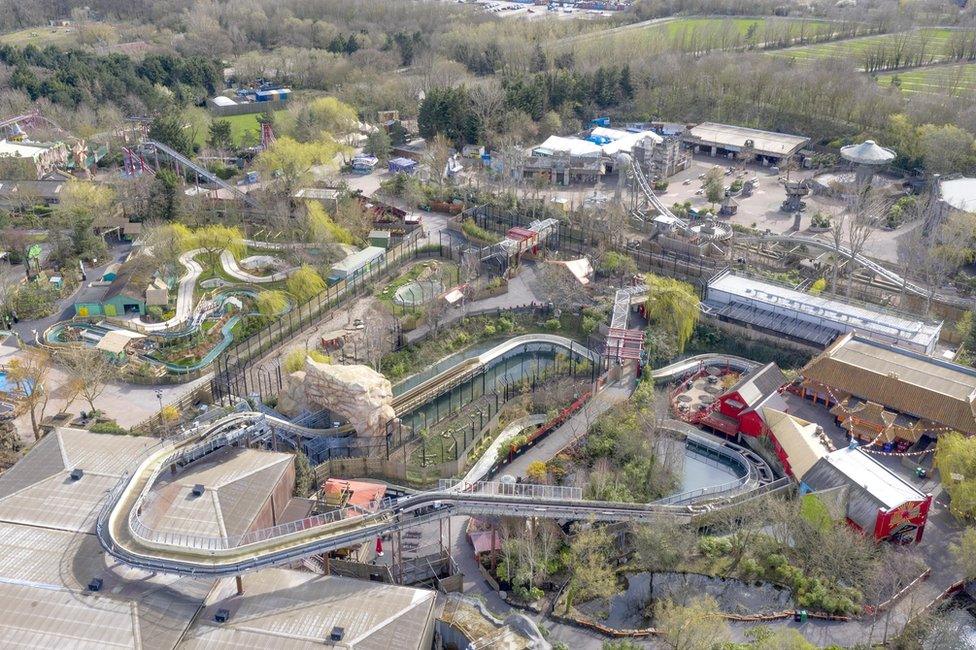
Chessington World of Adventures resembles a ghost town on 21 March 2020
.